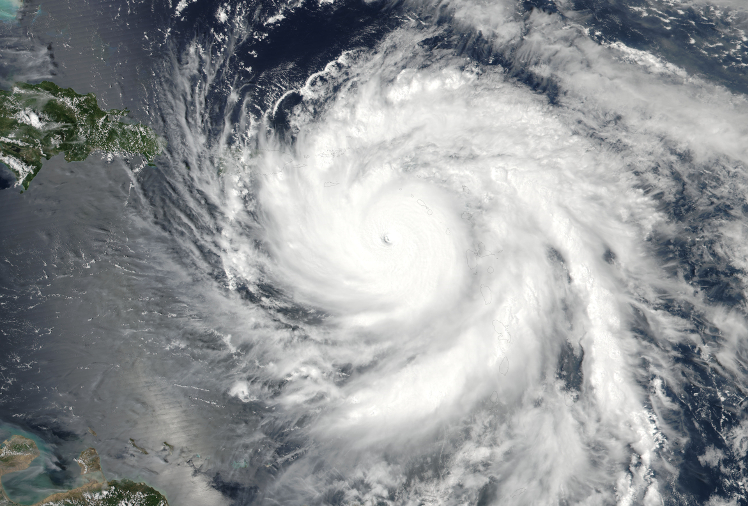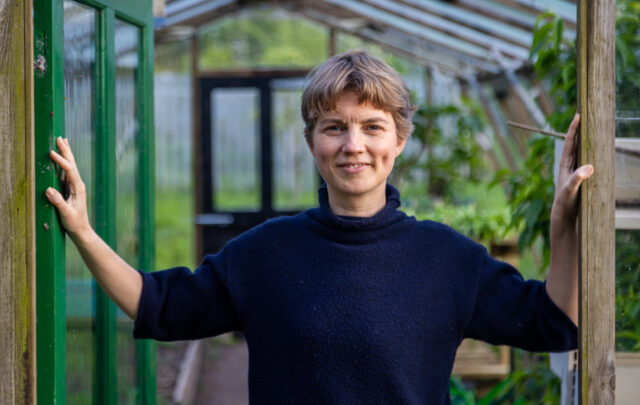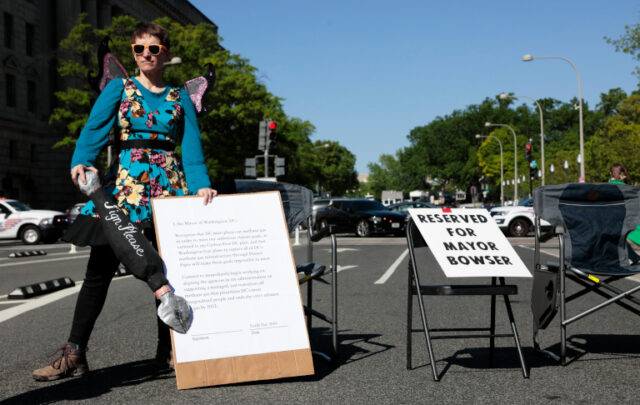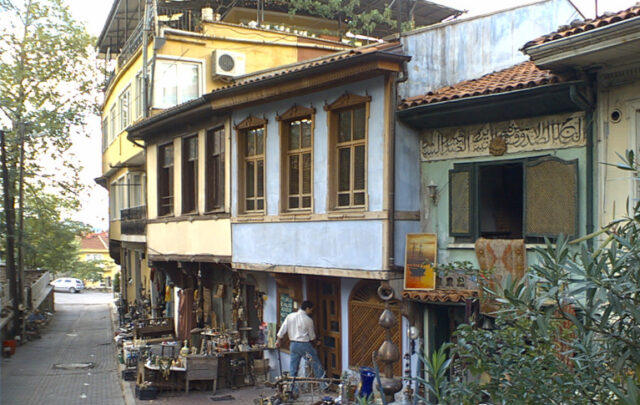I’m sure that some will criticize the insensitivity of the timing of this essay. How can you talk about Puerto Rico, climate change, and degrowth at this tragic time? But what time is better than now? There are only going to be more disasters and more tragic times ahead. And if after each one we spend billions on rebuilding costly infrastructure, the resulting carbon emissions are going to contribute to disasters elsewhere in the future. So when better than now to raise this—before billions of dollars are spent rebuilding Puerto Rico (and Houston and Florida too) in the same unsustainable, unresilient way that consumer economies have pursued thus far?
Perhaps the island’s debt crisis combined with this hurricane offers the perfect opportunity for Puerto Rico to develop in a different direction. Perhaps Maria can serve as the start of Puerto Rico’s “special period” where a simpler, more equitable, more sustainable pathway—and yes, poorer in consumer terms—is chosen.
In other words, could this disaster serve as the trigger of an intentional redirection of the island’s development? Could Puerto Rico degrow, and in the process bring about a more sustainable society?
The Benefits of Degrowth
First of all: why should Puerto Rico degrow?
The social and ecological costs of our fossil-fueled consumer culture are apparent—in disease burdens, in obesity rates, in CO2 emissions, and in other ecological costs. Choosing to move away from the consumer economic model could reduce obesity and connected disease burdens, reduce ecological impacts, reduce the stresses of modern day busy-ness, and help rebuild community as people once again work together in community and create webs of interdependence.
So if not the consumer model, how should Puerto Rico develop? Let’s look at Cuba’s special period, when the collapse of the Soviet Union and subsequent US embargo rapidly forced the country to go in a very different direction: returning to small-scale and sustainable agriculture; using far less energy; turning more to mass transit and bicycles for transportation; and greatly simplifying their economy. In the process, Cuba became one of the few countries with a one-planet ecological footprint that also sustains really high levels of human development outcomes, on par with the far richer United States. (To learn more on this watch this documentary or read this chapter from State of the World 2013.)
Along with requiring a strong state response during the crisis period (food rationing to prevent hoarding for example), this transition also required bold innovations both technological and cultural, such as converting all green spaces into small-scale community gardens. Could Puerto Rico act as boldly?
With a population of 3.4 million, and a higher density than Cuba, it wouldn’t be easy, but it could be possible (particularly as some Puerto Ricans will surely choose to defect from this new path and move to the mainland and as no embargo would mean access the most appropriate technologies to make this transition). So what exactly could be on the table?
Some Steps in the Path to Degrowth
With current estimates suggesting power might stay off for 4-6 months and the Power Authority already bankrupt, perhaps electricity should be rethought altogether. How much do households really need? Solar hot water could provide (very cheaply) hot water and a few solar panels could provide basic electricity requirements for basic lighting and cell phone charging. Air conditioning certainly can be let go. Is refrigeration necessary? This is a technology that feels like a necessity but hasn’t been around that long. Could people forego it (or at least share fewer refrigerators among communities)? Even if not, there are refrigerators available that use very little electricity—100 watt-hours a day—for example. Many other consumption patterns could also be rethought—down to even how housing is designed.
But more important than these changes would be macro-economic changes. How would Puerto Ricans sustain themselves if not as cogs in a consumer economy? Many Puerto Ricans could return to small-scale farming, converting yards, roadsides, soccer fields, schoolyards, and everywhere else into smallholder farms and community gardens. Others could be employed in restoring and expanding remaining forests, cultivating sustainable agroforestry crops, and in creating wetland buffers along coastlines. Many could also be trained as community sustainability and resilience educators to facilitate this transition. Others could be trained as family planning nurses to help bring down the population to a more sustainable level for an island that over the decades will be shrinking in area as sea levels rise. The tourism industry may also flourish in this restorative, idyllic landscape—particularly as the world flocks to Puerto Rico to learn how to implement these changes in their own societies.
At a Crossroads
Essentially the question is whether Puerto Ricans want to continue to be struggling consumers or whether there is an alternative development model that they (and others devastated by disasters) would accept. Could a low-consumption agrarian lifestyle that still provides citizens high levels of education and public health be valued over the consumer model that typically puts access to consumer goods above basic health, education, and security? (Just look at mainland United States where one can buy a hundred types of cereals or smartphones but struggle to find a good doctor or decent school.)
And of course, this is not only about ‘consumer preference.’ One of these models is ecologically restorative, while the other is rapacious and unresilient and will cause suffering to others elsewhere—both now and in the future. Ultimately, we either start making these difficult considerations or eventually after the second, third, or fourth leveling of a nation, the funds to keep rebuilding it will simply disappear. And those nations will be far worse off than if they had taken the more sustainable, less consumeristic path.
—-
Photo and Caption:
Hurricane Maria over the Leeward Islands near peak intensity and approaching Puerto Rico on September 19, 2017 as a Category 5 hurricane.
VIIRS image captured by NOAA’s Suomi NPP satellite





